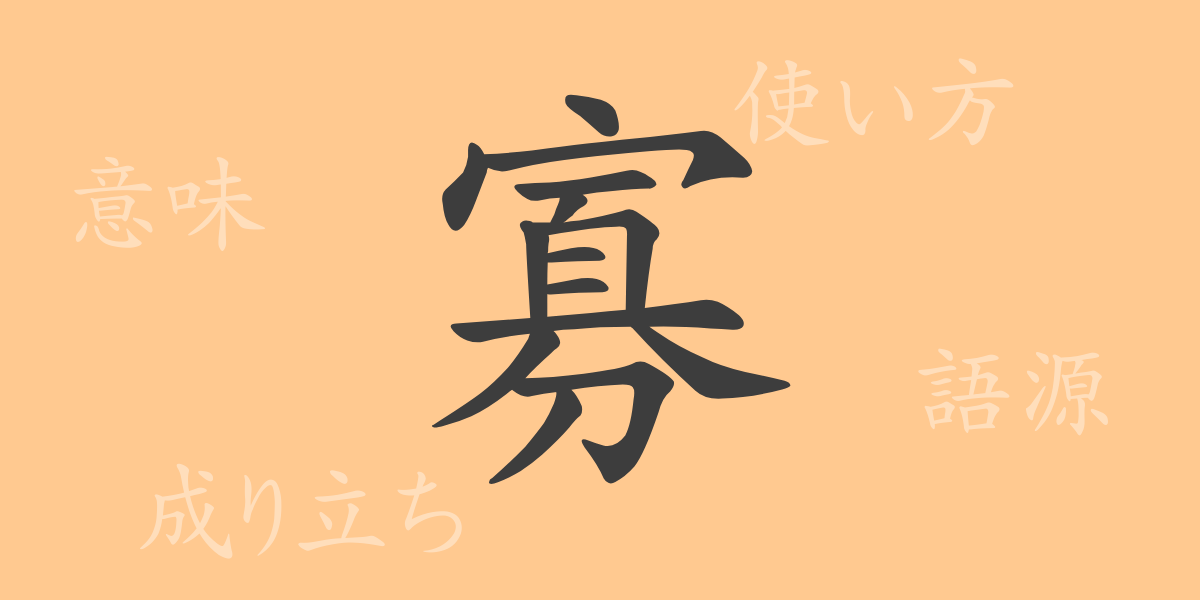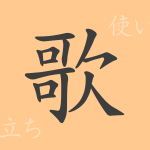The Japanese kanji characters contain rich meanings that are unimaginable from their shapes and stroke orders. The kanji “寡” (Ka), despite its simple appearance, encompasses a deep cultural background and history, and plays an important role in modern Japanese. This article will explore the full scope of “寡,” from its etymology to contemporary usage examples.
Origins of 寡 (Etymology)
The kanji “寡” (Ka) has its origins in ancient China. It originally derived from a pictograph that meant “few,” and is composed of the combination of “宀” (Ukanmuri), which signifies a house, and “ひ” (Hi), indicating a small number. This shape represents a house with few people inside, giving rise to meanings such as “few” and “a small number.”
Meanings and Usage of 寡
In modern Japanese, “寡” (Ka) means “few” or “a small number.” It is also used in contexts where a particular field or group has a small number, or in a context meaning a widow. For example, in economic terms, “寡占” (Kasen) refers to a situation where a few companies occupy a large share of the market, carrying social significance as well.
How to Read 寡, Number of Strokes, and Radical
The reading and basic information of the kanji “寡” (Ka) are as follows:
- Reading: The on’yomi (Sino-Japanese reading) is “か” (Ka), and there is no particular kun’yomi (native Japanese reading).
- Number of Strokes: There are 14 strokes in total.
- Radical: The radical is “宀” (Ukanmuri).
Idioms, Phrases, and Proverbs Using 寡 and Their Meanings
There are various idioms, phrases, and proverbs that include “寡” (Ka), such as:
- 寡占 (Kasen): A state in a market where a few companies hold the majority of the market share.
- 寡聞 (Kabun): Not knowing a wide range of things. Having a lack of knowledge or information.
- 寡黙 (Kamoku): Being of few words, taciturn.
- 寡婦 (Kahu): A woman who has lost her husband, a widow.
Summary of 寡
The kanji “寡” (Ka) symbolizes the richness and depth of expression in the Japanese language due to its wide range of meanings. Used across various fields, from economics to everyday conversation, and even in social contexts, this kanji is an indispensable part of Japan’s linguistic culture. Through this article, we hope you have gained a deeper understanding of “寡” and will pursue richer expressions in the Japanese language.

























